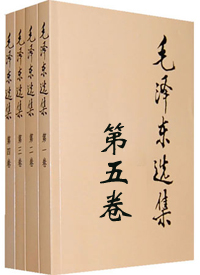The lovers saw each other every day. Cosette came with M. Fauchelevent.--"This is reversing things," said Mademoiselle Gillenormand, "to have the bride come to the house to do the courting like this." But Marius' convalescence had caused the habit to become established, and the arm-chairs of the Rue des Filles-du-Calvaire, better adapted to interviews than the straw chairs of the Rue de l'Homme Arme, had rooted it. Marius and M. Fauchelevent saw each other, but did not address each other. It seemed as though this had been agreed upon. Every girl needs a chaperon. Cosette could not have come without M. Fauchelevent. In Marius' eyes, M. Fauchelevent was the condition attached to Cosette. He accepted it. By dint of discussing political matters, vaguely and without precision, from the point of view of the general amelioration of the fate of all men, they came to say a little more than "yes" and "no." Once, on the subject of education, which Marius wished to have free and obligatory, multiplied under all forms lavished on every one, like the air and the sun in a word, respirable for the entire population, they were in unison, and they almost conversed. M. Fauchelevent talked well, and even with a certain loftiness of language--still he lacked something indescribable. M. Fauchelevent possessed something less and also something more, than a man of the world.
Marius, inwardly, and in the depths of his thought, surrounded with all sorts of mute questions this M. Fauchelevent, who was to him simply benevolent and cold. There were moments when doubts as to his own recollections occurred to him. There was a void in his memory, a black spot, an abyss excavated by four months of agony.--Many things had been lost therein. He had come to the point of asking himself whether it were really a fact that he had seen M. Fauchelevent, so serious and so calm a man, in the barricade.
This was not, however, the only stupor which the apparitions and the disappearances of the past had left in his mind. It must not be supposed that he was delivered from all those obsessions of the memory which force us, even when happy, even when satisfied, to glance sadly behind us. The head which does not turn backwards towards horizons that have vanished contains neither thought nor love. At times, Marius clasped his face between his hands, and the vague and tumultuous past traversed the twilight which reigned in his brain. Again he beheld Mabeuf fall, he heard Gavroche singing amid the grape-shot, he felt beneath his lips the cold brow of Eponine; Enjolras, Courfeyrac, Jean Prouvaire, Combeferre, Bossuet, Grantaire, all his friends rose erect before him, then dispersed into thin air. Were all those dear, sorrowful, valiant, charming or tragic beings merely dreams? Had they actually existed? The revolt had enveloped everything in its smoke. These great fevers create great dreams. He questioned himself; he felt himself; all these vanished realities made him dizzy. Where were they all then? was it really true that all were dead? A fall into the shadows had carried off all except himself. It all seemed to him to have disappeared as though behind the curtain of a theatre. There are curtains like this which drop in life. God passes on to the following act.
And he himself--was he actually the same man? He, the poor man, was rich; he, the abandoned, had a family; he, the despairing, was to marry Cosette. It seemed to him that he had traversed a tomb, and that he had entered into it black and had emerged from it white, and in that tomb the others had remained. At certain moments, all these beings of the past, returned and present, formed a circle around him, and overshadowed him; then he thought of Cosette, and recovered his serenity; but nothing less than this felicity could have sufficed to efface that catastrophe.
M. Fauchelevent almost occupied a place among these vanished beings. Marius hesitated to believe that the Fauchelevent of the barricade was the same as this Fauchelevent in flesh and blood, sitting so gravely beside Cosette. The first was, probably, one of those nightmares occasioned and brought back by his hours of delirium. However, the natures of both men were rigid, no question from Marius to M. Fauchelevent was possible. Such an idea had not even occurred to him. We have already indicated this characteristic detail.
Two men who have a secret in common, and who, by a sort of tacit agreement, exchange not a word on the subject, are less rare than is commonly supposed.
Once only, did Marius make the attempt. He introduced into the conversation the Rue de la Chanvrerie, and, turning to M. Fauchelevent, he said to him:
"Of course, you are acquainted with that street?"
"What street?"
"The Rue de la Chanvrerie."
"I have no idea of the name of that street," replied M. Fauchelevent, in the most natural manner in the world.
The response which bore upon the name of the street and not upon the street itself, appeared to Marius to be more conclusive than it really was.
"Decidedly," thought he, "I have been dreaming. I have been subject to a hallucination. It was some one who resembled him. M. Fauchelevent was not there."
这对情人天天见面。珂赛特和割风先生一同来。“事情颠倒过来了,”吉诺曼小姐说,“未婚妻亲自上门来让情人追求。”但马吕斯病后需要疗养,所以养成这个习惯,同时也因为受难修女街的沙发椅比武人街的草垫椅在促膝谈心时更加舒适,所以把她留住了。马吕斯和割风先生相见并不交谈,这好象是有了默契似的。女孩子都需要一个年长的人陪伴,没有割风先生,珂赛特就不可能来。对马吕斯来说,割风先生是珂赛特来到的条件。他接受了。当马吕斯把关于改善全民生活的政治问题含糊而不明确地摊在桌上谈时,他们相互要比说简单的“是”“不”稍稍多说了几句。有一次,关于教育问题,马吕斯认为应该是免费和强迫,应以各种方式使人人受教育,如同得到空气和阳光一样,一句话,要使全民都能受到教育,这时他们的看法一致了,并且相互间几乎是在进行交谈了。马吕斯这时注意到割风先生很会说话,在一定程度上谈吐甚至是高雅的。可是其中好象还缺少点什么。割风先生缺少某种上流社会绅士所具有的东西,但有些地方又有所超越。
在马吕斯的内心和思想深处,对这个仅仅是和气而又冷淡的割风先生有着各种没张口说出的疑问。有时他对自己的回忆发生怀疑。在他的记忆里有个窟窿,一个黑暗的场所,一个被四个月的垂死挣扎掘成的深渊。很多事在里面消失了。他甚至问自己在街垒里是否真见到了这样一位严肃而又镇静的割风先生。
再说过去的种种事物的出现和消逝并不是他思想里惟一感到惊奇的。不要认为他已摆脱了回忆一切的困扰,这些困扰,尽管在快乐的时候,尽管在心满意足的时候,也会使我们忧伤地回顾以往。不回顾消逝了的昨天的人是没有思想和感情的。有时候马吕斯两手托腮,于是骚乱而又模糊的往事就在他脑海深处掠过。他又见到马白夫倒下去,他听见伽弗洛什在枪林弹雨中唱歌,唇下又感到爱潘妮冰冷的额头;安灼拉、古费拉克、让·勃鲁维尔、公白飞、博须埃、格朗泰尔,所有他的朋友在他面前站起来又幻灭了。所有这些宝贵的、苦痛的、勇敢的、可爱的或悲惨的人是梦中之影还是真正存在过的?暴乱把一切都卷入了它的烟雾。这些热火朝天的人都怀着伟大的理想。他暗自发问,他在思索,消逝了的往事使他头晕目眩。他们究竟在哪里呢?难道真的都死去了吗?在黑暗中的一次跌倒,除了他一人之外,就把一切都带走了。他感到所有这一切好象都消失在剧院的一块幕布后面。生活中有着类似的幕落的场面。上帝又转到下一幕去了。
他自己还是原来的那个人吗?他原是穷苦的,但现在已变成富有的了;他是被遗弃的,现在有一个家了;他原是绝望的,现在要和珂赛特结婚了。他感到自己穿过了一座坟墓,进去时是黑的,出来时成白的了。这座坟墓,别人都留在里面没出来。有时这些过去的人,重新回来并出现在他眼前,围着他,使他沮丧;于是他想到珂赛特,心情又恢复了平静。惟有这一幸福才能消除这种灾难的印象。
割风先生几乎也处在这些消失的人中。马吕斯对于街垒中的割风先生是否就是面前这个有血有肉、庄重地坐在珂赛特旁边的割风先生,始终犹豫不敢相信。第一个割风可能是他在昏迷时刻的噩梦里出现而又幻灭了的。此外他俩的性情太不一样,马吕斯不可能向他摆出问题,也不曾想到过要这样做。我们也已经指出过这一特殊的细节。
两个人有个共同的秘密,而这也象一种默契一样,两人对这个问题并不交谈,而这也不象人们所想的那样比较罕见。
只有一次,马吕斯试探了一下。他在谈话中故意提到麻厂街,于是向割风先生转过身去问道:
“您认识这条街吧?”
“什么街?”
“麻厂街。”
“这一街名我没有一点印象。”割风先生回答他时语气非常自然。
他的回答是涉及街名,而不是涉及街道本身,马吕斯觉得这更说明问题。
“无疑的!”他想道,“肯定我做过乱梦。这是我的一种错觉。那是个和他相似的人。割风先生并没有去过那儿。”






